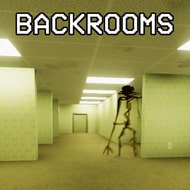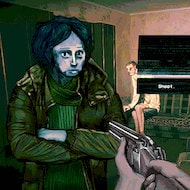

No, I’m Not a Human 2 builds upon the foundation of its predecessor, deepening the survival horror experience with the introduction of all-new levels, significantly enhanced enemy AI, and a greater variety of environmental challenges. Players are once again thrust into oppressive spaces teeming with hostile, humanoid-like entities, where a delicate balance of exploration, stealth, and puzzle-solving is paramount.
The sequel deliberately escalates the difficulty and complexity of encounters, layering in unpredictable threats, more intricate level designs, and a broader arsenal of tools for survival. Every decision, from the path taken to the resource used, carries weight, as the game masterfully intertwines thick atmospheric tension with demanding strategic decision-making.
The core gameplay involves navigating expansive, multi-level environments that range from derelict buildings and claustrophobic corridors to treacherous outdoor areas and secret rooms. Scouring these locations for essential items, keys, and narrative clues is vital for advancement. Keen observation is a player’s greatest asset, with subtle audio whispers or fleeting visual disturbances often serving as the only warning of nearby danger.
Success hinges on the effective use of stealth—moving quietly, utilizing shadows, and timing movements to avoid detection. Meticulous resource management, such as conserving limited light sources or deploying tools at the optimal moment, often delineates the fine line between survival and a grim capture.
No, I’m Not a Human 2 introduces a roster of smarter, more perceptive, and dangerously unpredictable enemies that represent a significant evolution from the original game. Hostile entities now employ more complex behaviors, such as coordinated patrol routes, dynamic reactions to player sounds, and the ability to stage ambushes from unexpected locations.
The environments themselves are antagonistic, featuring hazards like collapsing floors, dangerously narrow corridors, and strategically blocked paths that complicate escape. The game continues to leverage a sophisticated system of audio and visual cues—distant footsteps, unsettling whispers, and erratic flickering lights—to persistently heighten tension and keep players in a state of constant anticipation.
The game is designed for high replayability, with procedural elements introducing slight variations in enemy behavior and item placement across playthroughs. This encourages players to continuously develop, test, and refine their survival strategies.
Mastering the game requires careful observation of enemy patterns, memorization of complex level layouts, and judicious management of scarce resources. It is an experience that rewards cautious exploration, strategic foresight, and patience, delivering a deeply tense and immersive horror challenge that tests a player’s composure as much as their skill.
No, I’m Not a Human 2 successfully expands on the survival horror formula of its predecessor by presenting more complex environments, intellectually formidable enemies, and increased strategic demands. By seamlessly integrating tense stealth gameplay, meticulous observation, and punishing environmental challenges, the sequel delivers a relentlessly suspenseful and immersive experience that rigorously tests players’ nerves and decision-making skills at every turn.